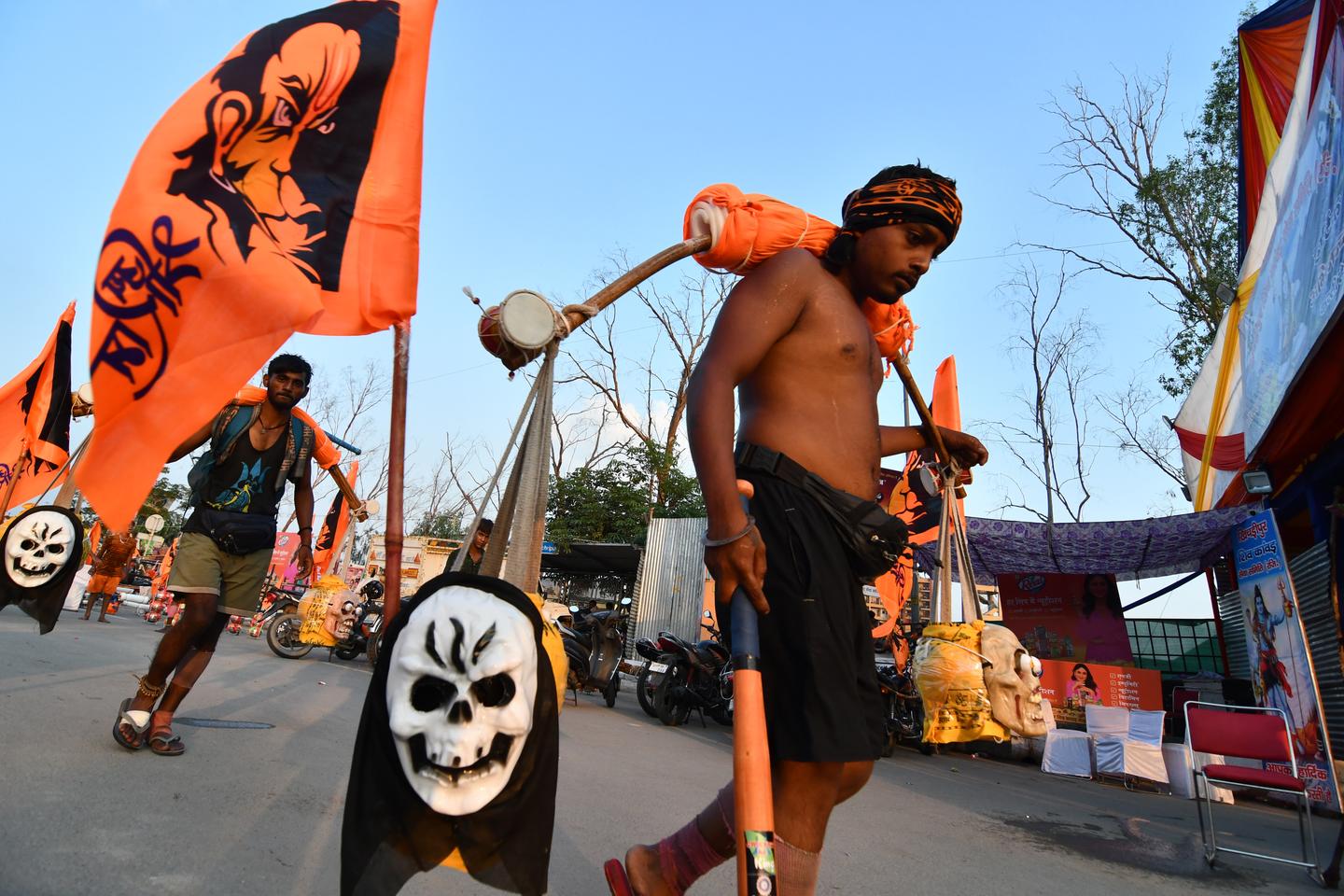
The Maharaja Bhoj restaurant did everything it could to avoid the boycott, changing its ownership and name and even going so far as to fire all Muslim employees and suppliers. The restaurant is located in Muzaffarnagar in India’s largest state, Uttar Pradesh, on the route of the Kanwar Yatra, a Hindu pilgrimage in honor of the god Shiva that takes place every year between late July and August.
The procession, which is becoming increasingly popular among young Hindus, is constantly marred by violence along its route. It begins in the holy city of Haridwar in the neighboring state of Uttarakhand at the foot of the Himalayas, where devotees draw water from the Ganges to take to their local temple. For days, millions of pilgrims from poor backgrounds ply the streets, carrying the water in containers slung over their shoulders using bamboo poles. They travel on foot, on motorbikes or in trucks with music blaring nonstop from their loudspeakers. Many are under the influence of cannabis and spread fear and terror as they travel. Some establishments even close their doors during the height of the religious procession for fear of vandalism.
On July 17 this year, Muzaffarnagar police, citing “law and order” reasons, asked restaurant owners to disclose their names and those of all their employees. The unspoken aim is to tell customers whether the business is run by Muslims – who make up 14 percent of India’s population, or over two hundred million people – or Hindus.
The measure was defended by Uttar Pradesh Chief Minister Yogi Adityanath, a fanatical monk who himself hails from the ranks of the Bharatiya Janata Party (Indian People’s Party, BJP), the political group of Prime Minister Narendra Modi. Pilgrims “are very careful about what they eat,” police said, claiming the decision had nothing to do with religion. During this period, worshippers generally follow a strict vegetarian diet, avoiding both garlic and onions.
“The police spend their time harassing us”
At Maharaja Bhoj, which previously belonged to the two brothers Shameem and Waseem Ahmad, precautions had already been taken. Muslim restaurant owners in Muzaffarnagar have been victims of discrimination for years. “The police constantly harassed us and as a Muslim I could no longer run my restaurant,” said the younger brother Shameem, 27, openly. So on June 1, before the start of the pilgrimage, the Ahmad brothers sold their business to a Hindu friend, Neeraj Kumari.
You still have 61.82% of this article to read. The rest is for subscribers only.

